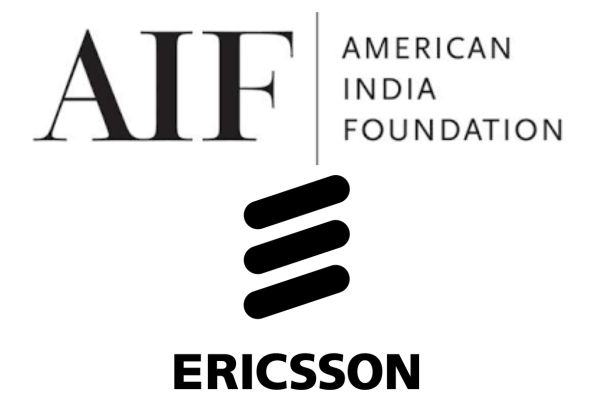The American India Foundation Trust (AIF), in partnership with Ericsson, has successfully concluded the first phase of a transformative digital education project that has redefined the future of STEM learning for over 12,500 students across 50 government schools in Uttar Pradesh. At a time when access to quality STEM education remains deeply unequal, especially for girls and students in underserved government schools, this initiative stands out not only for its innovation and scale but for its uncompromising commitment to equity, inclusion, and lasting systemic change.
Launched in 2024 across the districts of Hapur, Ghaziabad, and Gautam Buddha Nagar, the Ericsson-AIF STEMPowering Project, implemented under AIF’s flagship, award-winning Digital Equalizer program, was designed to tackle the deep digital and gender divide in education through a robust, tech-integrated model that places students and teachers at the center. At its core is the belief that every child, regardless of gender, geography, or socio-economic background, deserves the opportunity to explore, build, and lead in a technology-first world.
The project established five STEM Innovation and Learning Centres (SILCs) to serve as vibrant hubs for hands-on, project-based learning, each equipped with age-appropriate STEM kits, digital devices, and experiential modules aligned with the NCERT curriculum. These hubs were complemented by 45 smart classrooms in surrounding government schools, where interactive audio-visual technology brought science and math to life. This shift from chalk-and-talk to exploratory, digital-first pedagogy was made possible by extensive capacity-building of more than 250 government school teachers, who were trained in digital pedagogy and supported through workshops and ongoing mentorship. As a result, technology was not just introduced, but meaningfully embedded in classrooms to create lasting behavioral shifts in both teaching and learning.
An independent endline evaluation revealed the measurable, tangible impact of the intervention. Access to functional STEM infrastructure in project schools surged from 27.8% to nearly 98.6%. Attendance in smart classrooms climbed from 60.5% to 98%, signaling a significant boost in student engagement. Students who previously reported that science was a difficult subject dropped from nearly 24.8% to 17.5%, while confidence and interest in STEM as a career pathway grew markedly. The percentage of students expressing interest in pursuing science beyond Grade 10 jumped from 26.7% to 47.6%, and those considering careers in digital and technology fields reached a staggering 92.9%. This is not just a shift in classroom metrics— it is a shift in mindset, aspiration, and future possibility.
“This project is about far more than infrastructure,” said Manisha Tripathi, Regional Director – North, AIF. “It’s about power—power that comes from exposure, access, and opportunity. When a girl in Hapur walks into a STEM lab and sees a 3D printer or builds her own solar car, something changes. She begins to imagine a life beyond limits. At AIF, we believe that the future of India’s economic and social progress lies in its ability to equip every child with the tools to participate in a digital world. Our partnership with Ericsson is rooted in this shared belief. Together, we are laying the foundation for inclusive innovation, led from the grassroots.”
The success of the initiative reflects the strength of the partnership that enabled it. Ericsson, a global leader in communications technology, brought not only its commitment to digital inclusion but also a strategic approach to capacity-building and scale. The collaboration with AIF—leveraging its two-decade presence in India’s development ecosystem—ensured deep community engagement, integration with school systems, and alignment with government priorities, including the National Education Policy 2020. Together, the two organizations designed an intervention that is high-impact, cost-effective, and scalable across geographies.
“As a technology company, we believe in democratizing access to the tools and skills of tomorrow,” said Mr. Rajesh Gupta, Whole-Time Director, Ericsson India Private Limited “Digital literacy and STEM learning are not optional; they are foundational to economic participation and citizenship in the 21st century. This project with AIF is a model for how corporations and civil society can co-create meaningful, measurable change. We are proud to have reached thousands of young minds in Uttar Pradesh, and we see this as just the beginning.”
Beyond the impressive metrics, the project’s true value lies in the stories it has catalyzed — classrooms where science is no longer feared but embraced, schools where adolescent boys and girls are no longer passive listeners but active problem-solvers, and homes where parents see their children dreaming bigger because they now know what’s possible. These shifts are subtle, yet seismic.
With the first year successfully completed, AIF and Ericsson are now looking ahead. Plans are underway to integrate AI-powered learning tools for personalized instruction, deepen digital safety and cyber wellness content, and create stronger linkages between students and real[1]world career pathways in STEM. As the partnership evolves, so too will the scope and ambition of the intervention. The work is far from done, but for 12,500 children in Uttar Pradesh, the future just became a lot brighter.

















